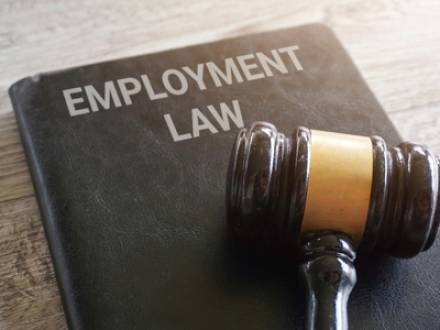
 847-995-1205
847-995-1205
My Overweight Employee is Suing Me for Failure to Accommodate
 If your employee in Illinois is suing you for failure to accommodate a weight-related condition, you may wonder whether obesity qualifies under the law as a disability. This is a question that is not answered simply. The legalities around obesity and workplace accommodation are complex and constantly evolving.
If your employee in Illinois is suing you for failure to accommodate a weight-related condition, you may wonder whether obesity qualifies under the law as a disability. This is a question that is not answered simply. The legalities around obesity and workplace accommodation are complex and constantly evolving.
In some situations, obesity could fall under the protections of the Americans with Disabilities Act (ADA) or the Illinois Human Rights Act (IHRA), especially if linked to an underlying medical condition. It is essential that you understand your legal obligations as an employer in situations like these to avoid costly litigation. A Schaumburg, IL employment defense attorney can help ensure that your company remains compliant and free from employee lawsuits.
Can Obesity Be Considered a Disability in Illinois?
Under the ADA and the Illinois Human Rights Act, obesity is not automatically considered a disability. It can, however, be considered a disability if it is the result of an underlying disorder or condition that significantly limits a major life activity. To qualify as a disability, the condition must substantially restrict an individual’s ability to perform "major life activities," which can include working, walking, sitting, or lifting.
So, if an employee’s obesity is linked to a genetic disorder, disease, injury, congenital condition of birth, functional disorder, hormonal imbalance, or another medical condition that impacts his or her ability to perform daily tasks, it could be considered a disability. Even if an employee’s obesity is not directly a disability, he or she could be considered disabled under the "regarded as" prong of the ADA if an employer perceives an employee as having a disability and treats them unfairly as a result.
What is the Difference Between a Perceived Disability and an Actual Disability?
An actual disability is a physical or mental impairment that significantly limits one or more major life activities. A perceived disability ("regarded as" disability) occurs when a person is treated as if he or she has a disability even if the legal definition of a disability is not met.
If the employer of an overweight person either consciously or subconsciously treats the employee as though he or she has a disability, then this could be perceived as discrimination, which is prohibited. For example, the employer places the overweight employee on the lobby floor, even though other employees in the same work category are located in a loft-like area that overlooks the lobby (based only on the employer’s perception of the employee’s obesity).
What Does "Reasonable Accommodation" Mean?
It is the responsibility of the overweight employee to prove to the employer that his or her weight is a disability. If it is a disability, then the employee could request certain accommodations such as:
- Larger office chairs or desks
- Seatbelt extenders, if the employee is required to drive a company vehicle
- Ramps, wider doorways, or accessible restrooms
- Wheelchairs, walkers, or scooters, if mobility is affected
- Flexible or reduced hours
- Remote work hours if the job can be done remotely
- Relocation of a work area to a more accessible location
- Reassignment of tasks that involve prolonged standing, excessive walking, or heavy lifting
- Adjustments to policies regarding breaks, dress codes, or other areas impacted by obesity
What is Undue Hardship?
While employers must not dismiss requests without a full assessment or make discriminatory comments or assumptions about an employee’s weight, there are certain instances in which accommodation becomes an "undue hardship" for the employer. An undue hardship is more than a minor inconvenience; rather, it is a request that requires significant difficulty, an excessive financial burden, or significant, ongoing operational disruption. An undue hardship is also one that fundamentally changes the nature of the job or the job duties.
Contact a Schaumburg, IL Employment Lawyer
A lawsuit over failure to accommodate can be stressful and damaging, especially when the legal definitions are fuzzy. If you are facing a claim related to an employee’s disability status, a Schaumburg, IL employment attorney from The Miller Law Firm, P.C. can help. Attorney Miller has an MBA in Finance, in addition to his law degree, which provides benefits to his clients. Call 847-995-1205 to schedule a free consultation.
Contact Us


Schaumburg, IL 60173
Phone: 847-995-1205
